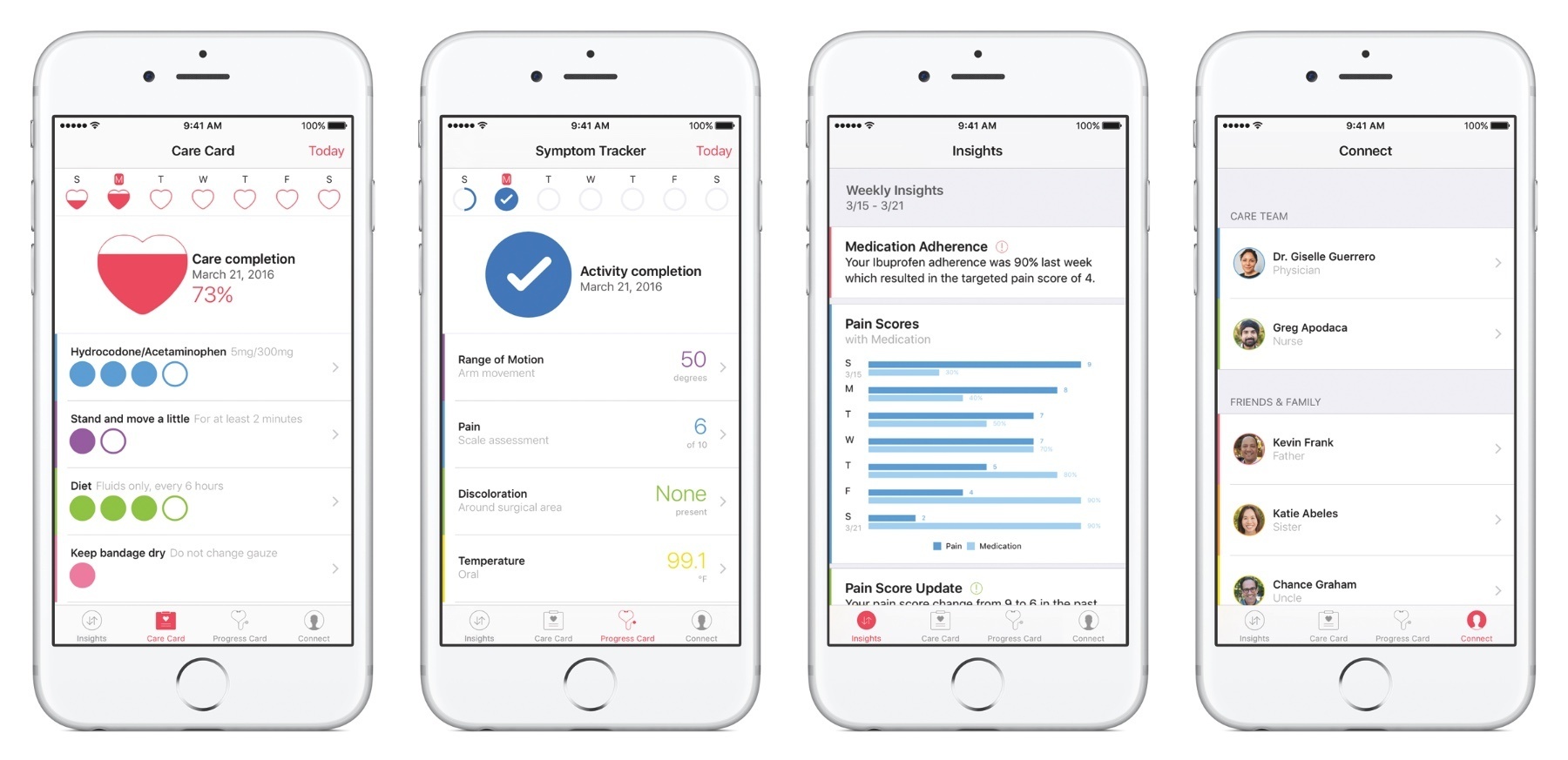During Apple’s spring event last year, the Cupertino company announced a new health initiative with ReasearchKit. The feature was to connect medical researchers with iPhone users to gather data at unprecedented scale and speed. The goal: accelerate research on treatment and cures for illnesses.
ResearchKit Update and Advancements
One year later, and Apple reports that ResearchKit has been a great success. ResearchKit studies are among the largest in history, and researchers have already been making new discoveries and gaining new insights into illnesses. Apple exemplified this with an Autism ResearchKit study which is working to identify Autism mere months after children are born, rather than years after. Another ResearchKit study has reportedly all but confirmed the existence of subclasses of Type 2 Diabetes.
In response to the success of ResearchKit, Apple today announced updates to the open source framework which will enable iPhone apps (often paired with physical medical devices) to collect genetic data and perform various medical tests that are generally only conducted in exam rooms. These new capabilities will allow researchers around the world to collect new and more specific types of data from participants in their studies and programs. In particular, Apple called out Postpartum Depression, Cardiovascular Disease, and Asthma as three diseases whose research will be advanced using the new genetic data gathering in ResearchKit studies.
CareKit
CareKit is a new open source framework that Apple will be releasing next month, which will enable people to actively manage their medical conditions through custom care plans, symptom trackers, and more. Where ResearchKit focuses on mass data collection from many people, CareKit is designed for the individual.
CareKit apps are a link between a specific patient and their doctor or caretaker. They are designed around four specific modules (though this number is sure to be expanded). Care Cards will help patients track their individual care plans, telling them when they need to take their medication and how much of it to take, or when they need to perform their physical therapy exercises and which exercises to perform. Sensors on Apple Watch or iPhone can be used to automatically track exercises and submit data.
The Symptom and Measurement Tracker module is the place for patients to record their symptoms so they can be monitored over time. This will allow patients to submit progress update surveys, photos of visible physical wounds or other problems, and more.
The Insight Dashboard will compare symptoms to Care Card plans and graphically display the effectiveness of various treatments.
Finally, the Connect module will allow patients to communicate with their doctors or caretakers regarding their health and conditions.
All together, it should be obvious how much the CareKit framework could change the system of interaction between doctors and patients. Doctors will gain access to an unprecedented amount of interaction with their patients and be able to monitor progress daily or even hourly rather than weekly, monthly, or more. Patients can communicate much higher quality information from home, perhaps allowing them to cut down on routine checkups of easily trackable conditions.
Wrap Up
It’s easy to see the amazing implications of CareKit, and as ResearchKit has already pioneered Apple’s way into the health field, I have little doubt that they’ll be able to gain some traction with their latest ideas. We’ll keep watching the progress of CareKit through its release this April, and make sure to post updates on advancements and expansion that the framework undergoes.
You can also follow all of the MacStories coverage of today’s Apple’s keynote through our March 21 Keynote hub, or subscribe to the dedicated March 21 Keynote RSS feed.


